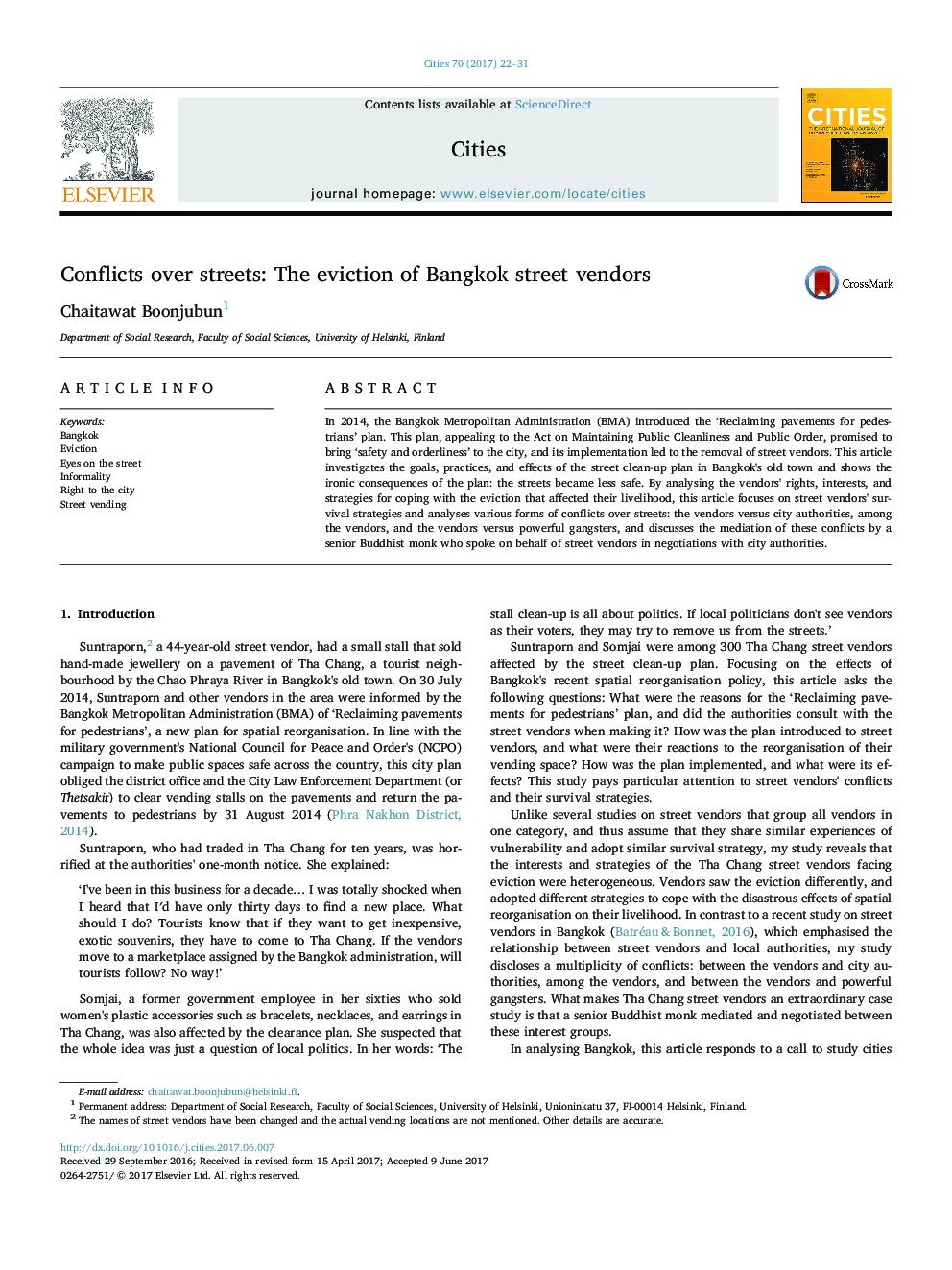| Article ID | Journal | Published Year | Pages | File Type |
|---|---|---|---|---|
| 5107977 | Cities | 2017 | 10 Pages |
Abstract
In 2014, the Bangkok Metropolitan Administration (BMA) introduced the 'Reclaiming pavements for pedestrians' plan. This plan, appealing to the Act on Maintaining Public Cleanliness and Public Order, promised to bring 'safety and orderliness' to the city, and its implementation led to the removal of street vendors. This article investigates the goals, practices, and effects of the street clean-up plan in Bangkok's old town and shows the ironic consequences of the plan: the streets became less safe. By analysing the vendors' rights, interests, and strategies for coping with the eviction that affected their livelihood, this article focuses on street vendors' survival strategies and analyses various forms of conflicts over streets: the vendors versus city authorities, among the vendors, and the vendors versus powerful gangsters, and discusses the mediation of these conflicts by a senior Buddhist monk who spoke on behalf of street vendors in negotiations with city authorities.
Related Topics
Social Sciences and Humanities
Business, Management and Accounting
Tourism, Leisure and Hospitality Management
Authors
Chaitawat Boonjubun,
